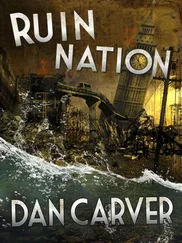Dan Singer - Start-up Nation
Здесь есть возможность читать онлайн «Dan Singer - Start-up Nation» весь текст электронной книги совершенно бесплатно (целиком полную версию без сокращений). В некоторых случаях можно слушать аудио, скачать через торрент в формате fb2 и присутствует краткое содержание. Жанр: Старинная литература, на английском языке. Описание произведения, (предисловие) а так же отзывы посетителей доступны на портале библиотеки ЛибКат.
- Название:Start-up Nation
- Автор:
- Жанр:
- Год:неизвестен
- ISBN:нет данных
- Рейтинг книги:3.5 / 5. Голосов: 2
-
Избранное:Добавить в избранное
- Отзывы:
-
Ваша оценка:
- 80
- 1
- 2
- 3
- 4
- 5
Start-up Nation: краткое содержание, описание и аннотация
Предлагаем к чтению аннотацию, описание, краткое содержание или предисловие (зависит от того, что написал сам автор книги «Start-up Nation»). Если вы не нашли необходимую информацию о книге — напишите в комментариях, мы постараемся отыскать её.
Start-up Nation — читать онлайн бесплатно полную книгу (весь текст) целиком
Ниже представлен текст книги, разбитый по страницам. Система сохранения места последней прочитанной страницы, позволяет с удобством читать онлайн бесплатно книгу «Start-up Nation», без необходимости каждый раз заново искать на чём Вы остановились. Поставьте закладку, и сможете в любой момент перейти на страницу, на которой закончили чтение.
Интервал:
Закладка:
That said, most major companies understand that in a global market where change is the only constant, innovation is one of the foundations of long-term competitiveness. Further, while it is possible for countries and companies to take advantage of innovation that originates elsewhere, there are also corporate and national advantages to being the source of innovation.
For this purpose, it may be possible to simulate an “Israeli” environment. Intel Israel’s Dov Frohman, for example, found it necessary to do this even in Israel itself. His original guiding slogan for Intel Israel was that it would be “the last Intel plant to close in a crisis.” When his employees found this description to be too negative, he changed his slogan to “survival through success”—meaning that the goal was success but the motivation was survival, which could never be taken for granted. For Frohman, the key to the success of a large company was “maintaining the atmosphere of a precarious start-up.” 5
Further, while other democracies have no reason to institute a military draft like Israel’s, a mandatory or voluntary national service program that is sufficiently challenging could give young college-age people—before they begin college—something like the leadership, teamwork, and mission-oriented skills and experience Israelis receive through military service. Such a program would also increase social solidarity and help inculcate the value of serving something larger than oneself, whether a family, a community, a company, or a nation. And when U.S. military men and women, for example, are transitioning to civilian life, they should not be advised to deemphasize their military experience when applying for a job.
For any nation and, indeed, for the world, the stakes of increasing innovation are tremendous. Paul Romer, considered one of the leading economists of “new growth theory,” points out that the average annual growth rate of the United States between 1870 and 1992 was 1.8 percent—about half a percent higher than in the United Kingdom. He believes that this competitive edge has been maintained by America’s “historical precedent for creating institutions which lead to better innovation.” 6Romer suggests that subsidizing graduate and undergraduate studies in science and engineering could boost economic growth. In addition, a system of “portable fellowships,” which students could bring to any institution, would encourage lab directors and professors to compete over meeting the research and career needs of students, not just their own.
Romer points out that the biggest leaps in growth and productivity were produced by “meta-ideas” that increased the generation and spread of ideas. Patents and copyrights were a critical meta-idea invented by the British in the seventeenth century, while Americans introduced the modern research university in the nineteenth century and the peer-reviewed competitive research grant system in the twentieth century.
“We do not know what the next major idea about how to support ideas will be. Nor do we know where it will emerge,” writes Romer. “There are, however, two safe predictions. First, the country that takes the lead in the twenty-first century will be the one that implements an innovation that more effectively supports the production of new ideas in the private sector. Second, new meta-ideas of this kind will be found.” 7
About an hour and a half into our meeting with President Peres, we ran out of time. His next scheduled appointment had arrived, and we prepared to say our good-byes. But as we stood to do so, he paused for a moment and said, “Why don’t you come back in half an hour and we can continue?” So we did, and he previewed what his message would be for Israel’s entrepreneurs and policymakers in the coming years: “Leave the old industries. There are going to be five new industries. Tremendous—new forms of energy, water, biotechnology, teaching devices—there’s a shortage of teachers—and homeland security to defend against terrorism.” Nanotechnology research, for which Peres has also been instrumental in establishing funding, he predicted, would cut across all of these new industries and others as well.
We don’t know whether Peres has picked the right industries, but that’s not the point. At eighty-five, he still has the chutzpah to think up and advocate new industries. As they do in Israeli society (and have throughout Israel’s history), the pioneering and innovative impulses merge into one. At the heart of this combined impulse is an instinctive understanding that the challenge facing every developed country in the twenty-first century is to become an idea factory, which includes both generating ideas at home and taking advantage of ideas generated elsewhere. Israel is one of the world’s foremost idea factories, and provides clues for the meta-ideas of the future. Making innovation happen is a collaborative process on many levels, from the team, to the company, to the country, to the world. While many countries have mastered the process at the level of large companies, few have done so at the riskiest and most dynamic level of the process, the innovation-based start-up. Accordingly, while Israel has much to learn from the world, the world has much to learn from Israel. In both directions, the most careful thing, as Peres told us, is to dare.
Acknowledgments
This book began as a long discussion between the two of us in April 2001, when Dan brought to Israel a group of twenty-eight Harvard Business School classmates. The purpose was to explore Israel’s economy, politics, and history. It was at a time of vast business opportunity in Israel but also, with the collapse of the peace process, of escalating insecurity.
Almost none of the students had any previous ties to Israel—in fact only three were Jewish. They came from a range of countries: the United Kingdom, the United States, Canada, Spain, Italy, Portugal, and India. At the end of the week, many were asking the same question: Where did all this innovation and entrepreneurship come from?
We realized that we did not have an answer.
Over the years since then, Saul would write Jerusalem Post editorials about the Israeli economy and Dan would come to Israel almost every other quarter to invest in start-ups and visit family. As Dan would meet with an impressive Israeli entrepreneur or Saul would highlight one, our curiosity grew.
We assumed there must be some book that explained what made the start-up scene so vibrant and seemingly impervious to the security situation. There wasn’t. So we decided to write one.
We are indebted to many people who have helped us along the way. The greatest compliment we can pay to Jonathan Karp, the founder and force behind Twelve, is that he is a true innovator in the book world. Publishing only twelve books each year, he is the quintessential undiversified investor. Jon taught us many things, most important among them was to do less arguing and more storytelling.
With energy and creativity, Cary Goldstein thought through who might be interested in this book and how to reach them. Colin Shepherd was meticulous in every phase of the book’s production and persistent as the deadline reminder. Dorothea Halliday was abundantly patient in the copyediting phase. Laura Lee Timko, Anne Twomey, Tom Whatley, and Giraud Lorber—also all part of Twelve’s team—were a huge help to us.
It was never a dull moment working with Ed Victor, our agent. In promoting our proposal, as with everything he does, Ed was chock-full of chutzpah . Don Epstein and Arnie Hermann were trusted advisers, too.
As a rare truly independent research institution in its field, the Council on Foreign Relations is a special place. It is an honor for Dan to have a home there. Richard Haass, CFR’s president, was immediately intrigued by the idea of a book on the Israeli economy. He contributed important insights and helped us draft expertise from CFR’s diverse scholars and members. We are also specifically grateful to CFR’s Isobel Coleman, author of the forthcoming book Paradise Beneath Her Feet: Women and Reform in the Middle East (Random House), for sharing her observations with us. Gary Samore, formerly of CFR, provided guidance early on. Jim Lindsay, CFR’s director of studies, made several important suggestions on improving the manuscript. The CFR staff is among the most professional of any organization we’ve dealt with in the private, academic, or public sectors; we would like to specifically thank Janine Hill for all her patient assistance, and Lisa Shields and her communications team.
Читать дальшеИнтервал:
Закладка:
Похожие книги на «Start-up Nation»
Представляем Вашему вниманию похожие книги на «Start-up Nation» списком для выбора. Мы отобрали схожую по названию и смыслу литературу в надежде предоставить читателям больше вариантов отыскать новые, интересные, ещё непрочитанные произведения.
Обсуждение, отзывы о книге «Start-up Nation» и просто собственные мнения читателей. Оставьте ваши комментарии, напишите, что Вы думаете о произведении, его смысле или главных героях. Укажите что конкретно понравилось, а что нет, и почему Вы так считаете.












